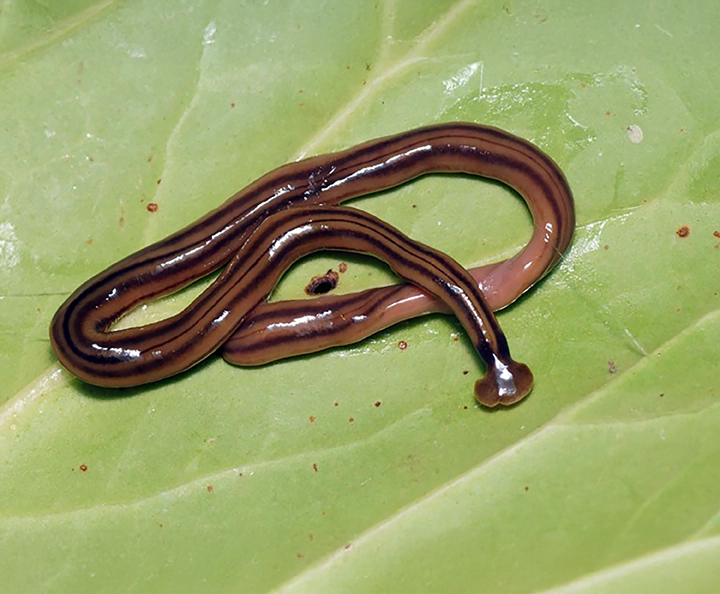May 12, 2025 | Repost from Seneca Nation Conservation – Fish & Wildlife
Bipalium is a genus of large predatory land planarians. They are often loosely called hammerhead worms or broadhead planarians.
Things to know:
Dangerous or not: Are hammerhead worms dangerous?
Yes, hammerhead worms can be dangerous. They secrete a toxin, tetrodotoxin, similar to that found in pufferfish, which can cause skin irritation, especially in children. While generally not fatal, they can pose a risk if ingested by pets, and their mucus can cause irritation if it gets in the eyes or mouth.

Here’s a more detailed look at the potential dangers:
Toxin: Hammerhead worms secrete a toxin called tetrodotoxin, which is a potent neurotoxin. Although they are ravenous earthworm hunters, hammerheads are coated in the same paralytic neurotoxin present in pufferfish, which keeps birds and other insects from preying on them. This gives them a decisive advantage in the food chain.
Skin irritation: The toxin can cause a rash if you handle them with bare hands.
Inhalation and ingestion: Inhalation of the toxin can cause breathing difficulties, and ingestion can lead to vomiting and diarrhea.
Risk to pets: If a pet eats a hammerhead worm, it can cause severe illness or even death, especially in small animals.
Regeneration: Hammerhead worms are hermaphroditic, so they reproduce without a mate. But that’s not the only way they multiply: Hammerhead worms can regenerate from broken body parts, meaning if you try to cut them in half, you’ll just create more worms.
What to do if you encounter a hammerhead worm:
Wear gloves: If you need to handle them, wear gloves.
Wash skin immediately: If you come into contact with their mucus, wash your skin thoroughly with soap and water.
Consult a doctor or veterinarian: If you experience any symptoms after handling or if your pet has ingested one, consult a medical professional.
Do not try to kill them by cutting them: They can regenerate from broken parts.
Consider using salt or vinegar: Salt or vinegar can be used to kill them, but it’s best to wear gloves and place them in a sealed container before disposing of them.




